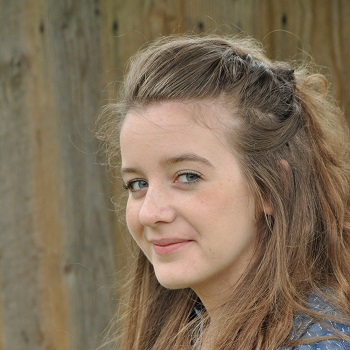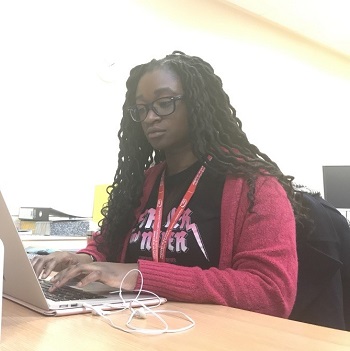Spotlight on: The Global Health Governance Programme
The Global Health Governance Programme researches how global institutions, finance and rules can better serve the needs of people across the world. The programme is based in the Usher Institute within Edinburgh Medical School.
Professor Devi Sridhar, Personal Chair in Global Public Health is the founding director of the programme and she is joined by staff and student researchers from across Edinburgh Medical School.
Members of the GHGP team have been conducting and sharing much research during the last several months of the Covid-19 pandemic. We caught up with a few of them to find out about their most recent work.
Genevie Fernandes – PhD student researcher

Genevie Fernandes is a public health researcher interested in policy and practice for advancing maternal and child health (MCH) especially in developing countries.
In her most recent article Genevie calls for the strengthening of health care systems as countries’ first line of defence against Covid-19.
She highlights how the global pandemic has highlighted several already well known and deeply persisting inequalities including:
- The disproportionately higher risk of Covid-19 complications for those with comorbities and who are socioeconomically disadvantaged.
- The higher risk of domestic violence for women during quarantines and lockdowns.
- The inequality between the healthcare systems of rich and poor countries.
Genevie also mentions that whilst the next pandemic might strike at any time, so might other events such as extreme weather, natural disasters and recurring economic crises.
“During all of these natural and human-caused crises, it is a country’s health system that is the first line of defence, and if the system is not resilient, it will be overwhelmed and collapse, exacerbating the health impact and adding to inequality” Genevie states.
Read the full article in the International Monetary Fund
Joey Brooke – medical student researcher

Joey became involved with the GHGP after attending the inaugural lecture of Prof Devi Sridhar, Director of the programme.
“The areas they worked on and the themes they delved into really resonated with me, and I wanted to help in any way I could” explains Joey.
Since the start of lockdown, Joey has been assisting the programme on an array of COVID-19 related research.
“Initially I looked into what the North American response to COVID-19 had been so far, covering Canada, Mexico and the US. I was then asked to compile a short brief of country exit strategies, and to update it as more countries announced plans to scale down lockdown. Google Translate was probably my ‘most visited’ page during this period! I then spent some time researching countries who had ‘successfully’ eliminated COVID-19, like the Faroe Islands, Iceland, New Zealand and Fiji. Since then I have investigated the effect of populist leaders on the COVID-19 response in Brazil, tracked the evolution of PCR testing, and looked into our current knowledge surrounding immunity and coronaviruses.
As I start to go back to clinical work and medical studies, doing this research alongside my studies helps me remember the bigger picture, and the interconnected nature we now practice medicine within.”
Follow Joey on Twitter @JoeyBrooke
Lois King – PhD student researcher

Lois King is a PhD student with the Global Health Research Unit on Respiratory Health in Asia (RESPIRE) at the University of Edinburgh.
Lois King is a member of the Data Evaluation and Learning for Viral Epidemics (DELVE) group, the Royal Society’s research action team collecting emerging data to produce rapid reviews to aid national response to the COVID-19 pandemic.
She contributed to a recently-published DELVE report on mask use for the general public, which was provided to the UK government’s Scientific Advisory Group for Emergencies in April 2020.
Lois has co-written articles with Prof Devi Sridhar about the importance of wearing a mask to slow community transmission of the virus (published in The Scotsman) and about Trump wanting to withdraw the US and its funding from the WHO (published in the BMJ). She is currently working on a DELVE report on the effect of COVID-19 in Black and Minority Ethnic (BAME) populations in the UK.
“It’s been amazing to be a part of all this research in real-time as the situation develops and we gain a better understanding of how COVID-19 is being managed and how to minimise its impact on our health. I find global health governance and policy fascinating as people who make decisions can have the greatest impact on public health, so producing research to inform policymakers has been very rewarding for me.”
Read the BMJ editiorial piece on Trump and the WHO
Visit the DELVE reports page
Follow Lois on Twitter
Visit the Global Health Governance Programme website
This piece was originally published on Scope, which shares stories and views from the College of Medicine & Veterinary Medicine.




Comments are closed
Comments to this thread have been closed by the post author or by an administrator.